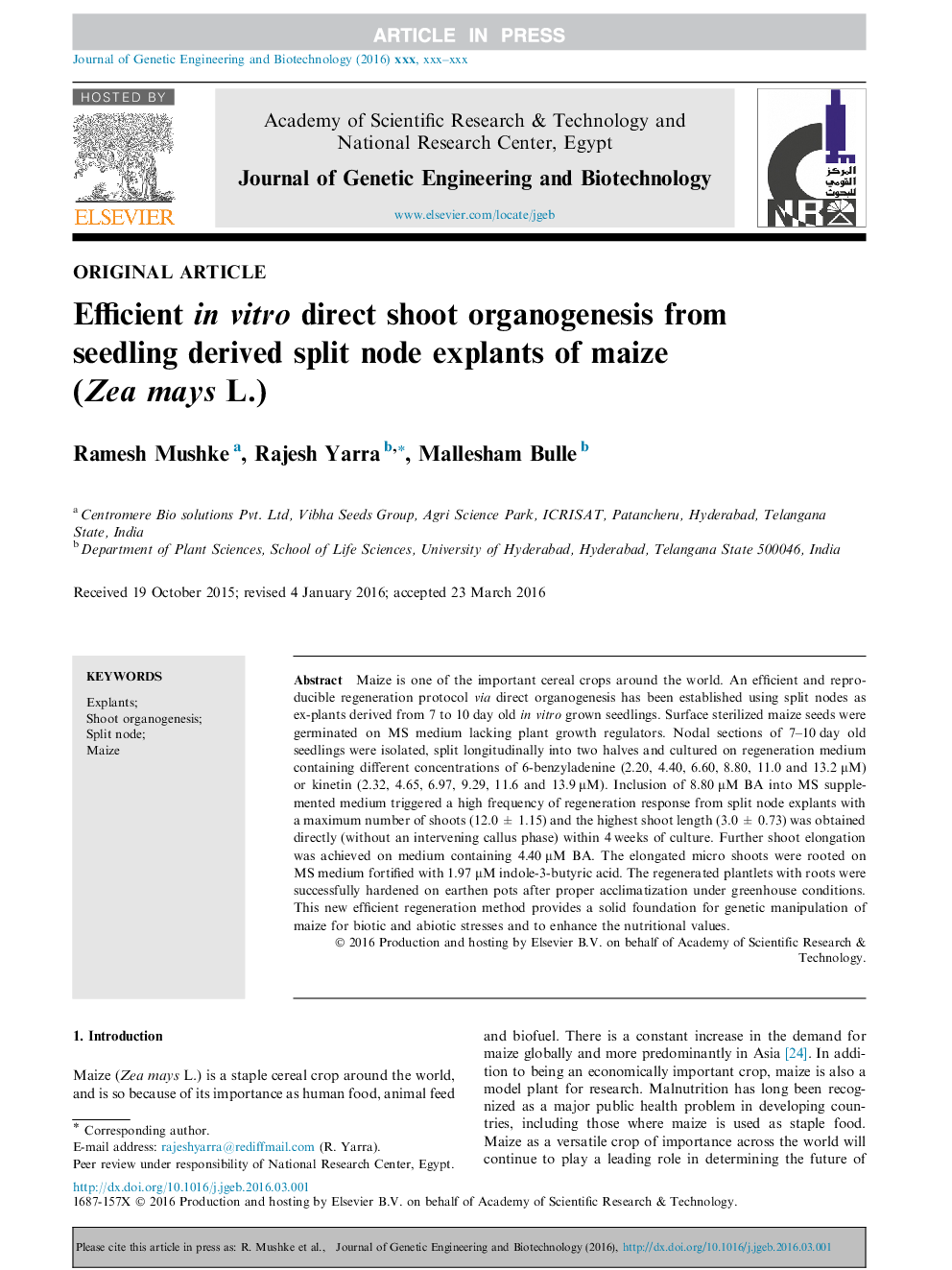| Article ID | Journal | Published Year | Pages | File Type |
|---|---|---|---|---|
| 8416563 | Journal of Genetic Engineering and Biotechnology | 2016 | 5 Pages |
Abstract
Maize is one of the important cereal crops around the world. An efficient and reproducible regeneration protocol via direct organogenesis has been established using split nodes as ex-plants derived from 7 to 10 day old in vitro grown seedlings. Surface sterilized maize seeds were germinated on MS medium lacking plant growth regulators. Nodal sections of 7-10 day old seedlings were isolated, split longitudinally into two halves and cultured on regeneration medium containing different concentrations of 6-benzyladenine (2.20, 4.40, 6.60, 8.80, 11.0 and 13.2 μM) or kinetin (2.32, 4.65, 6.97, 9.29, 11.6 and 13.9 μM). Inclusion of 8.80 μM BA into MS supplemented medium triggered a high frequency of regeneration response from split node explants with a maximum number of shoots (12.0 ± 1.15) and the highest shoot length (3.0 ± 0.73) was obtained directly (without an intervening callus phase) within 4 weeks of culture. Further shoot elongation was achieved on medium containing 4.40 μM BA. The elongated micro shoots were rooted on MS medium fortified with 1.97 μM indole-3-butyric acid. The regenerated plantlets with roots were successfully hardened on earthen pots after proper acclimatization under greenhouse conditions. This new efficient regeneration method provides a solid foundation for genetic manipulation of maize for biotic and abiotic stresses and to enhance the nutritional values.
Keywords
Related Topics
Life Sciences
Biochemistry, Genetics and Molecular Biology
Biotechnology
Authors
Ramesh Mushke, Rajesh Yarra, Mallesham Bulle,
